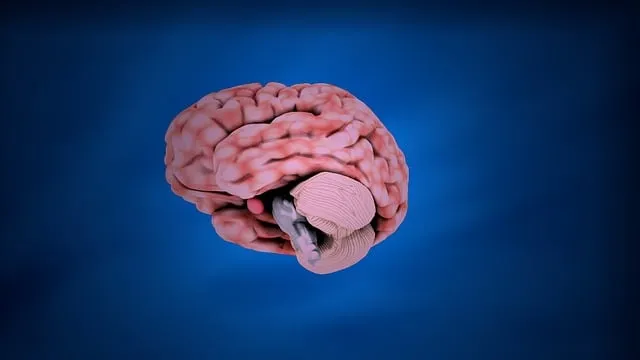The Centennial Kaiser Permanente mental health department prioritizes risk identification and mitigation to ensure staff and patient safety amidst diverse caseloads and unique challenges. They assess internal factors like workload pressures and patient demographics, as well as external stressors such as community issues and privacy breaches. Historical incidents, like staff burnout from traumatic cases, inform proactive initiatives like a wellness podcast series and Mind Over Matter training, fostering emotional intelligence and self-care to mitigate risks of burnout. The department also offers programs like Mood Management and Trauma Support, enhancing patient safety and resilience, ultimately benefiting both staff and patients within the Centennial Kaiser Permanente mental health department.
“In the realm of mental healthcare, ensuring patient safety and well-being is paramount. This comprehensive guide delves into the critical task of risk assessment for professionals within the Centennial Kaiser Permanente mental health department. We explore identifying internal and external threats, drawing from a historical case study to highlight potential risks. Furthermore, we present effective risk management strategies, including policy development, staff training, and data-driven evaluation methods. By implementing these practices, the department can enhance its resilience and continuously improve patient outcomes.”
- Identifying Risks Within the Mental Health Department
- – Assessing internal and external threats to patient safety and well-being
- – Case study: Historical incidents and their impact on the department's risk profile
Identifying Risks Within the Mental Health Department

Identifying risks within the mental health department is a critical aspect of ensuring a safe and supportive work environment for professionals at Centennial Kaiser Permanente. This involves a comprehensive evaluation of various factors unique to the department, such as caseload management, patient demographics, and prevalent mental health conditions. By analyzing these elements, the mental health team can uncover potential hazards like high workload pressures, diverse cultural backgrounds, and complex patient cases that may contribute to professional burnout or increased stress levels.
The Centennial Kaiser Permanente mental health department, with its dedicated professionals, must also address systemic issues such as the enduring mental illness stigma, which can negatively impact both patients and staff. Implementing self-care practices and fostering an open dialogue through communication strategies are essential steps in mitigating these risks. These efforts not only promote resilience among mental health professionals but also contribute to effective Mental Illness Stigma Reduction Efforts within the organization.
– Assessing internal and external threats to patient safety and well-being

Mental health professionals at the Centennial Kaiser Permanente mental health department are tasked with navigating a complex landscape where both internal and external factors can pose significant threats to patient safety and well-being. Internally, ensuring effective communication channels, robust clinical supervision, and access to ongoing professional development is paramount. These measures help mitigate risks associated with burnout, staff turnover, and the potential for mismanaged cases.
Externally, the Centennial Kaiser Permanente mental health department must be vigilant in addressing factors like patient accessibility, privacy breaches, and community-level stressors that can indirectly impact treatment outcomes. Incorporating services such as Mood Management programs, Trauma Support Services, and Stress Management Workshops within the Organization’s framework is strategic in equipping patients with coping mechanisms and fostering a supportive environment. Such initiatives not only enhance patient safety but also contribute to the overall resilience of the mental health care system.
– Case study: Historical incidents and their impact on the department's risk profile

In examining the risk assessment for the Centennial Kaiser Permanente mental health department, a historical perspective offers valuable insights into shaping current safety protocols. Over the years, incidents within the department have left an indelible mark on its risk profile. For instance, a past case study highlights a period of heightened stress and burnout among staff following prolonged exposure to traumatic patient cases. This event underscored the need for comprehensive mental health education programs designed to equip professionals with coping mechanisms and resilience strategies.
The mental wellness podcast series production within Kaiser Permanente has since evolved as a proactive measure, providing a platform for open discussions on challenges faced in the field. By integrating Mind Over Matter principles into their professional development curriculum, the department aims to foster a culture of emotional intelligence and self-care. These initiatives are crucial steps towards mitigating risks associated with staff burnout and ensuring the well-being of mental health professionals at Centennial Kaiser Permanente.
The Centennial Kaiser Permanente mental health department, with its dedicated professionals, faces unique challenges that demand a comprehensive risk assessment. By identifying internal and external threats through case studies of historical incidents, the department can proactively manage risks to ensure patient safety. This strategic approach, tailored to the specific needs of the mental health field, is essential for maintaining a secure and effective clinical environment, ultimately enhancing the well-being of patients within this critical healthcare sector.






